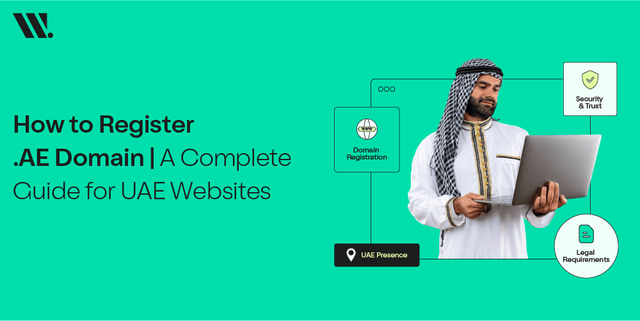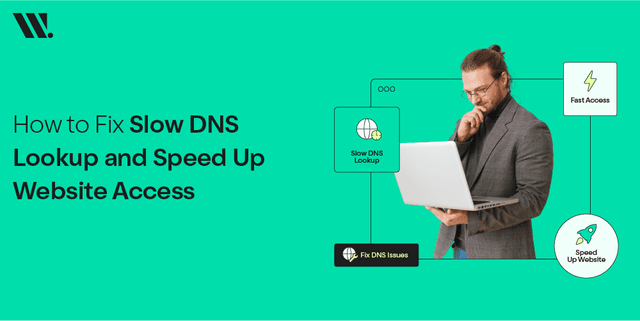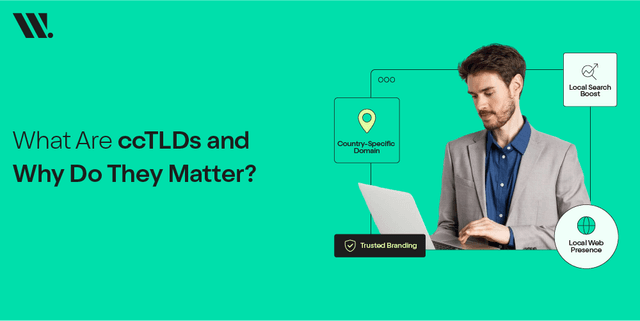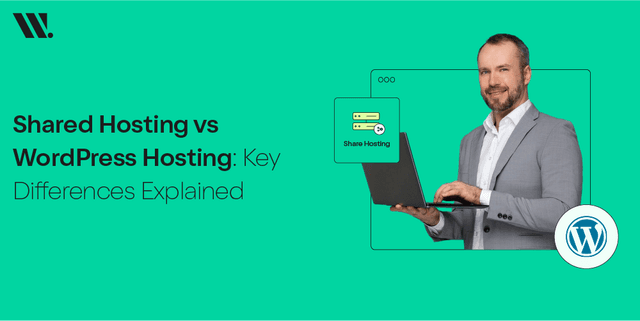If you are reading this article, it means you are concerned about your website security.
And why shouldn't you be?
After all, you are investing your time, resources, and efforts in it.
Whether you are running a personal blog or you own a successful ecommerce store, data breaches can happen with anyone.
You must've thought of your website's security while purchasing web hosting and web development services in Pakistan. If not, this article will educate you about 8 simple ways to improve your website security.
1. Get An SSL Certificate
Probably you would know about the very basic difference between a secured and unsecured website connection. Users trust the secure connection and so does Google. Basically, SSL helps to create an encrypted link between a web server and a web browser.
It ensures the data transferred between users and the web server is completely safe. Since the information you share passes from your system to any system in the world, SSL makes sure only the intended recipient has access to it.
For example, when users register to your site or make payments online, SSL ensures that the data sent between browser and server is encrypted, without anyone in-between being able to intercept any of the information.
Moreover, when you buy an SSL certificate, your web server will indicate to the browser that it is using a trusted form of encryption and the data is safe.
SSL certificate has become mandatory in 2021 as Google considers a secure connection as a ranking factor. Every credible web hosting company in Pakistan will offer you SSL according to your website's requirements.
2. Use Strong Passwords
You might think that your website name with random numbers is a good password, but in fact, it is very weak. It can be cracked in seconds by software (unless you have upper case letters and symbols as well, which you should!) A good password should be at least 12 to 14 characters long.
It is also best to use special characters such as ! or $ in your passwords. You can check how strong a password is by going onto Online Dictionary Attacker.
To make your password even more secure, you should change it regularly (every month or so) and use different passwords for all your accounts (e.g., email, Facebook, etc.).
This way, if a hacker gets one of your passwords, they won't be able to hack into everything else as well. Another useful tip is not to use the same Username / Password for everything.
If someone can guess your password, they can log into your email and any other account you have on the internet. If somebody gets hold of one of your passwords, then they will probably use it to try and log in to your email account.
Once you have logged in through the website, they can read all of your incoming and outgoing emails, and they can also send new emails from your account without you knowing about it.
This is a great way for them to get hold of sensitive information and you wouldn’t want that. SO, make sure the password you use is strong and difficult to crack.
3. Use Antivirus Software
Antivirus is probably the most well-known security measure. It can check your system for malicious programs (e.g., Trojans and Viruses) whenever you download something new. It can be very useful if somebody tries to upload one of these onto your system without you knowing about it.
Antivirus software should be updated regularly (at least once a week) to ensure that you are protected as new viruses are released every day.
When a new virus is inflicted into systems, an update should be available within a few hours, which will protect you against it (assuming that you have already turned on the automatic updates).
It might consume a few minutes more from your daily routine, but it’s worth it.
4. Backup Your Data
If you own a website, backing up your data is a must-do obligation. Because you never know what happens in the online world. When ecommerce giants like Amazon and Walmart are proactive about their customer’s data so should you.
Suppose somebody uploads malicious software onto your computer and steals important data. In that case, it's very difficult to get your website data back if you don’t have a backup saved.
This is where backing up regularly comes in. You should back up everything often (at least once a month) so that you don't lose anything if your computer gets stolen or crashes.
Here are other reasons why most small businesses fail to establish an online presence and go bankrupt: Data loss is the biggest reason small businesses fail as 60% of the businesses admit they don’t update website data regularly.
Check the stats below.
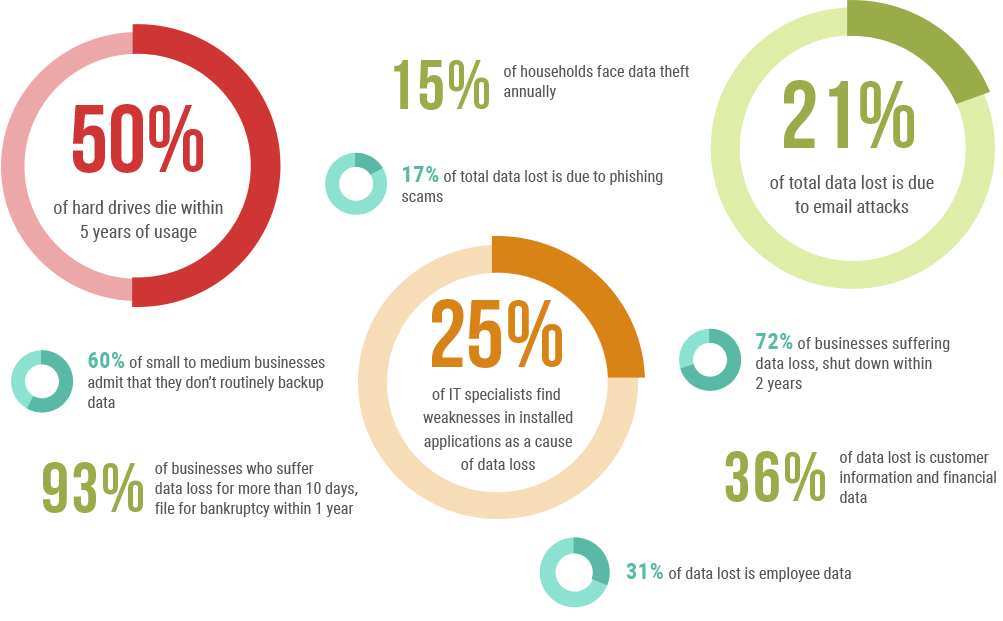
If you don't have a backup and your system gets damaged, then either you restore from an earlier backup, or if there isn't one available, you lose everything which isn’t less than a nightmare.
It is important to back up regularly because if something does happen, it's much easier and quicker to restore from a backup rather than starting afresh.
If possible, you should have more than one copy of your data to make sure that you are completely safe and to allow you to restore a previous backup in case something goes wrong.
5. Modify Your CMS Default Setting
If you are using a CMS (Content Management System), it is in your best interest to change the default settings like adjusting control comments, user visibility, and permissions.
So it's up to you as the website owner to change these settings and make your website much safer for people who visit it.
A good example of where this would be useful would be if someone had a forum on their website and hadn't updated the software in a while.
In this case, it's probably best to turn off all of the active content because somebody could get onto that same computer and upload malicious software from the new posts within minutes.
6. Keep Software Up to Date
New versions of software usually come with new security patches, which fix security flaws in existing code.
To ensure that you are always up to date with the most recent software patches, you should regularly change all of your passwords. Web development companies in Pakistan recommend updating your password once a month.
When a security issue is announced, hackers take time to find out about the problem and exploit it. If you change your password before they are aware of the problem, they won't be able to take advantage of it.
Always install the latest version of the software as soon as possible after it is released.
This will ensure that you always have the most secure version of a particular program.
You can check your software and operating system's versions by going onto Control Panel > System and Security > Windows Update.
7. Choose a Secure Web Host
Some web hosts are more secure than others. Make sure the web host in Pakistan you choose is aware of the potential threats a website goes through and provides proactive support in case of any emergency.
The best way to test whether a host is secure is to do an online search for vulnerabilities on the host's website (e.g., "Website Name" hack or SQL injection).
If no results appear, then your host is probably secure. If search results appear, then your host should be avoided at all costs.
Ask these questions before deciding which web host is credible to handle your website security:
- Does the potential web hosting company offer Secure File Transfer Protocol (SFTP)
- Are the backup services fast and reliable?
- Do they keep website owners abreast of the latest security updates?
- Do they have a history of satisfied customers in the past?
If you have answers in positive, you are fine to go with the right option.
8. Hire a Website Security Expert
If you are a business owner, you probably won't have time to focus on website security as you must be busy improving your online presence.
In that case, you must hire a potential web security expert in Pakistan to ensure that your site is as secure as possible.
Web development in Pakistan is getting popularized; businesses are shifting online, now, they only trust companies that have professional business hosting services and security experts.
Website security experts encrypt the data on your server/site and lock any services, so that they are only available when needed (e.g., when somebody tries to login rather than all the time).
They save your website from any possible vulnerabilities, perform website security audits and install an Intrusion Detection System (IDS) on your server, which will monitor incoming traffic and raise alerts whenever a malicious attempt is made.
This can help to stop intruders before they cause any damage. On the other hand, if they gain access to your site, it would be much harder for them to do anything without triggering an IDS alert.
So, when a majority of the unprotected websites are prone to get hacked and breached, what are you doing to secure your website and save yourself from any online data breach?


